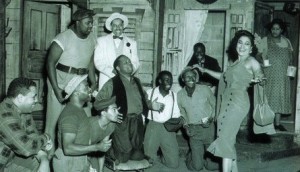
Many of you, on the basis of the title alone, could write this post yourself. Porgy and Bess is an iconic masterwork of the arts in the U.S. It is justifiably performed countless times by opera companies everywhere. And it sometimes provides a textbook example of the myopia with which arts organizations often conduct themselves in communities.
On numerous occasions, when I am discussing engagement and the necessity of developing and being in relationships over a long period of time, Porgy comes up. The first time it did so, many years ago now, I was conducting a community-oriented workshop on engagement and two women from a local African-American church mentioned a local opera company’s production of the work and that company’s efforts to sell tickets to the church’s members. The biggest issue on their mind, years later, was “We hadn’t heard from them before and we haven’t heard from them since.”
This story illustrates several critical elements of engagement. First, arts organizations can be (unconsciously) ham-fisted in their interactions with the community. So focused are they on their product (so absorbed in “keeping the doors open”) that basic “rules” of interacting with strangers are forgotten. Second, at a minimum, Porgy ticket sales would have been far more successful if there had been a relationship with those churches before the production was scheduled. And even if there had not been, using the production to begin something would have been far superior to the hit-and-run sales effort. If the relationship would have been nurtured from Porgy forward, that would have been an acceptable (though not ideal) approach.
But the most important lesson may be that there are people in our communities who are not merely neutral toward the arts but, based on experiences such as this (and even more serious affronts), are hostile to the arts community. This is difficult for many of us to acknowledge, but awareness of the fact prepares us for working in community. Knowing there may be holes out of which we have to dig ourselves is worthwhile knowledge. We can be prepared.
Engage (with care and respect)!
Doug
- Photo:

 Some rights reserved by TeledyN
Some rights reserved by TeledyN

Very, very true! Terrific post!